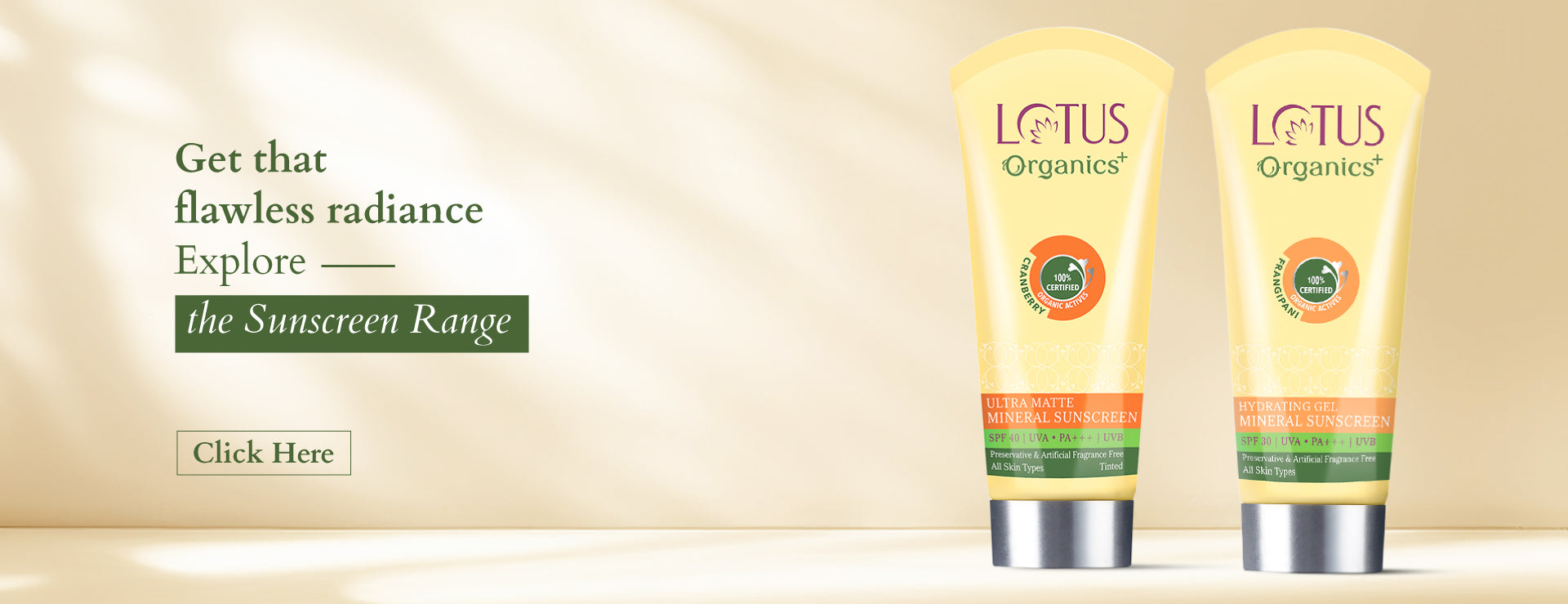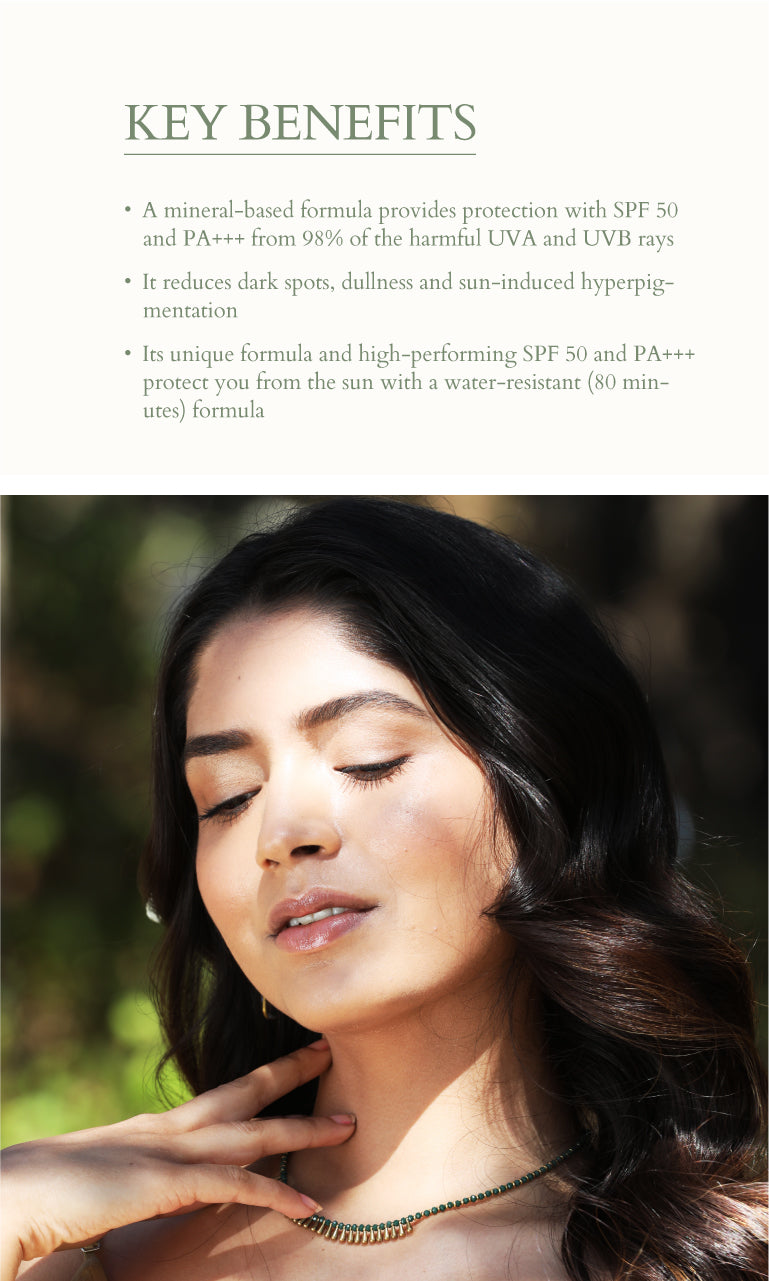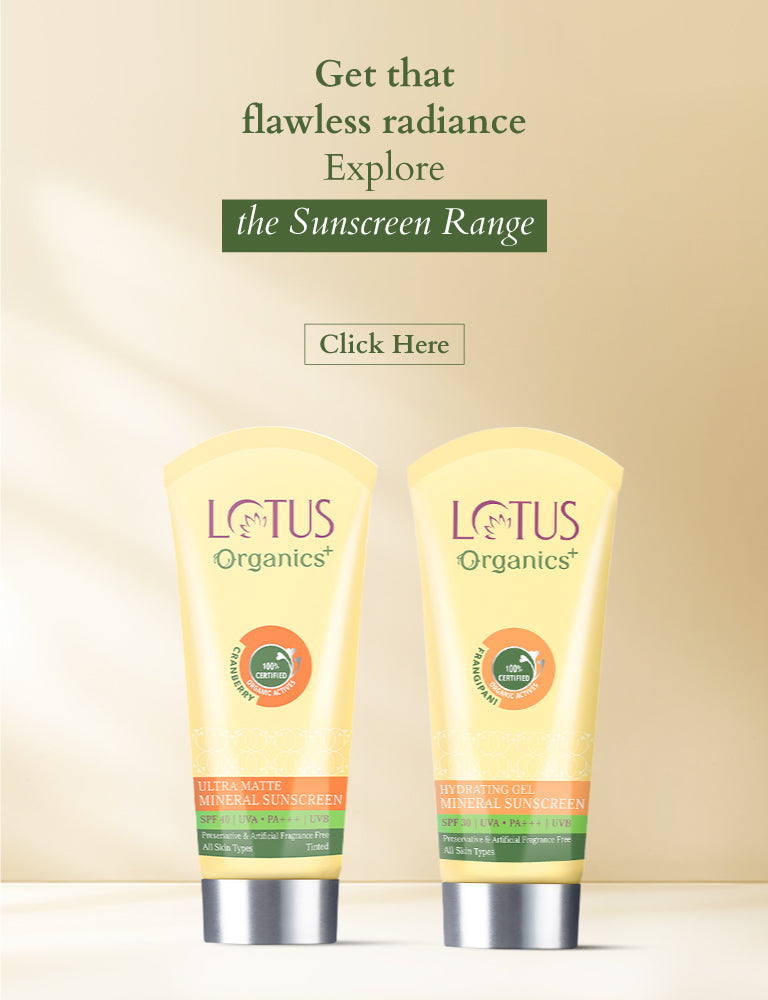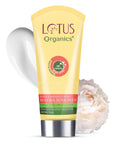
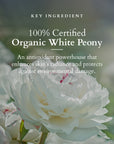
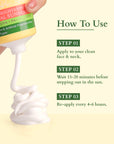
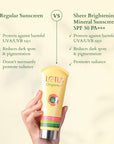
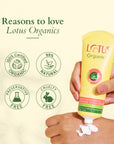
Sheer Brightening Mineral Sunscreen SPF 50 PA+++
UVA/UVB Rays | Sun Tan | Sunburn
Inclusive of all taxes
The promise of Purity: Vegan, Cruelty-free, Preservative-free, Sulphate-free, Paraben-free ; made with 100% Certified Organic Actives.
Sustainable: Most of our products are made with 100% recyclable packaging material (Paper boxes, glass bottles and jars, recyclable plastics and aluminium tubes).
• Pour the sunscreen along the length of two fingers.
• Apply liberally to a clean face, neck, and other exposed skin areas.
• Wait 15 to 20 minutes before going outside in the sun.
• To keep your skin protected and healthy, reapply every 4-6 hours.
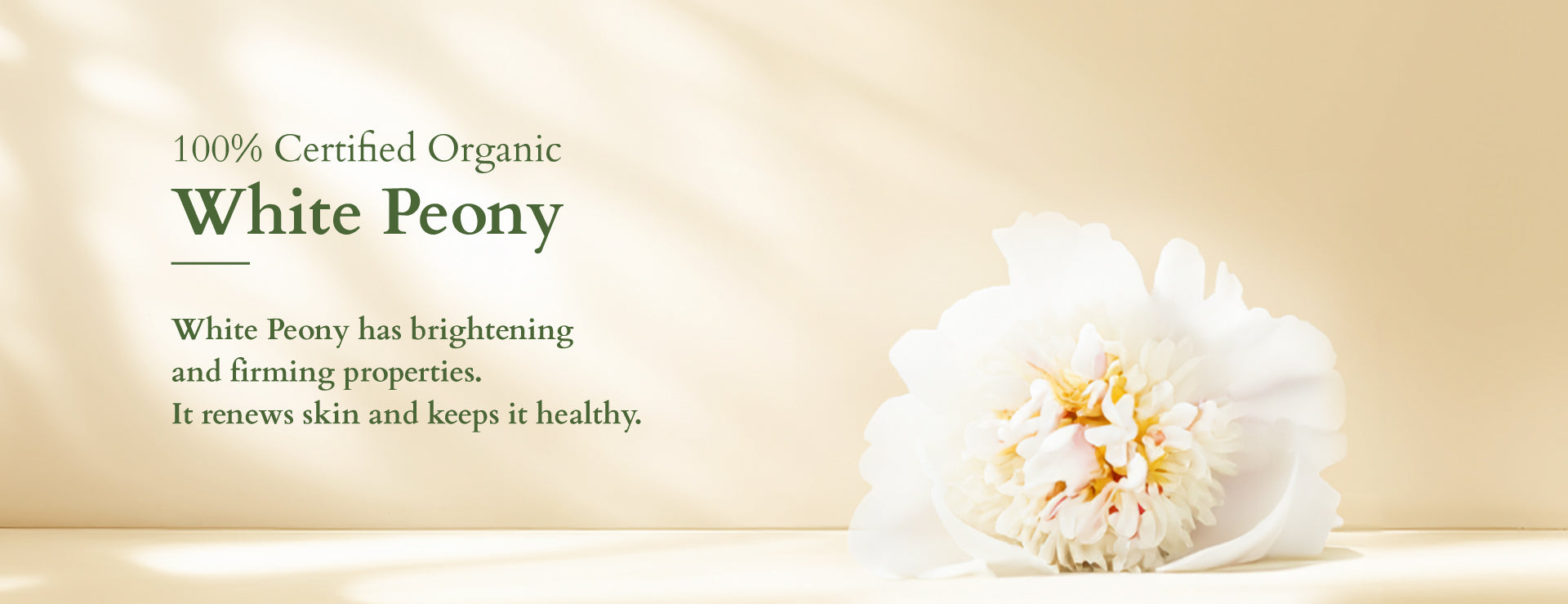
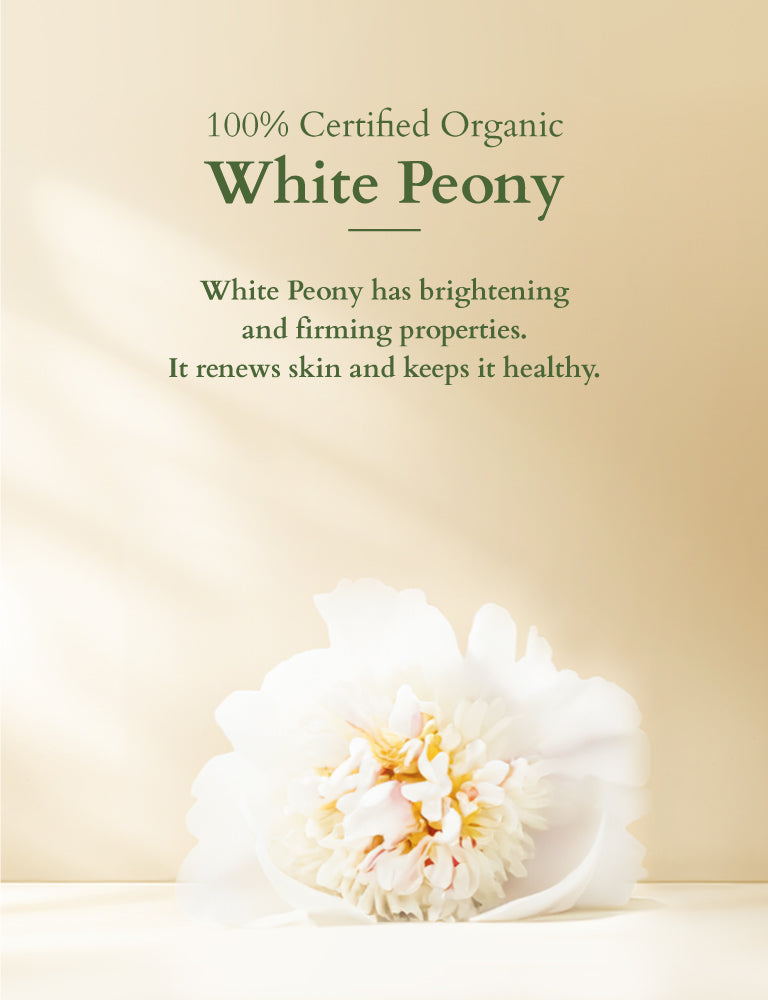
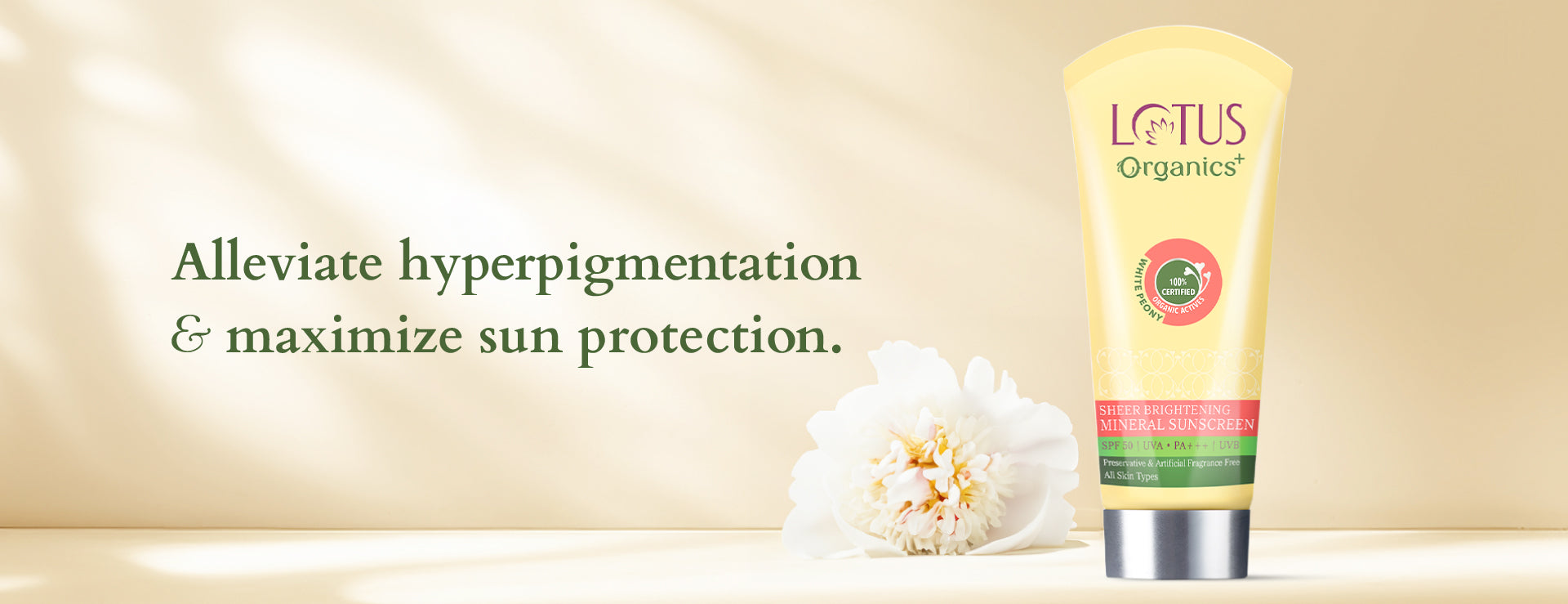
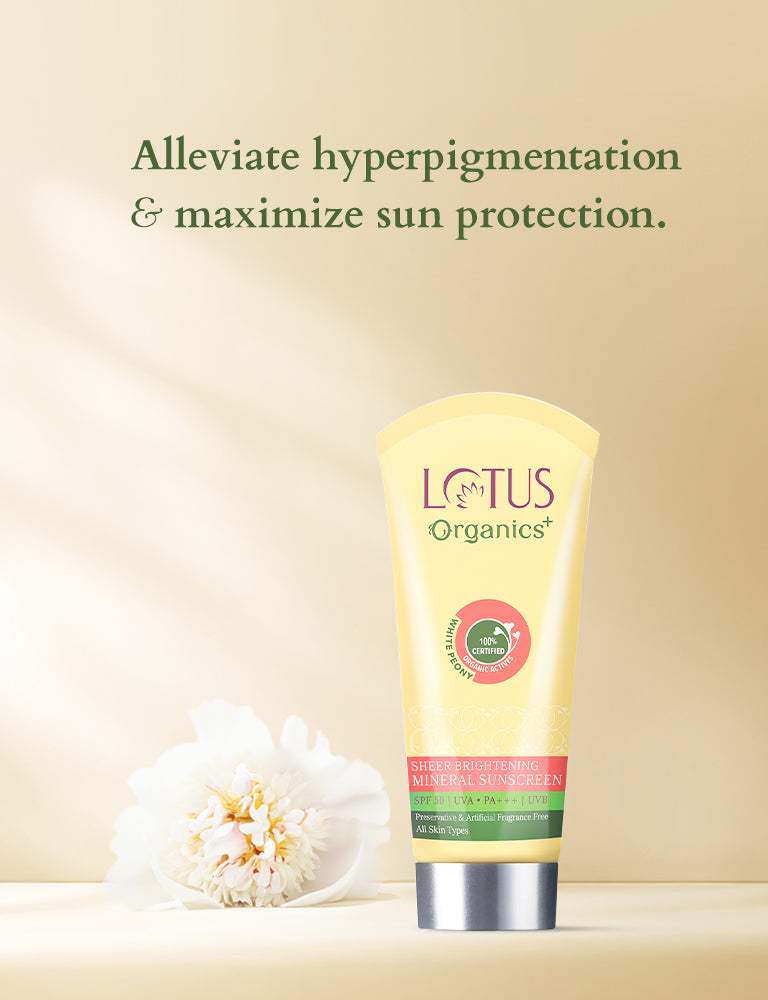
Frequently asked question
No our mineral susncreens have great absorption and are easily absorbed by the skin while creating an effective barrier to prevent the harmful effects of UVA/UVB rays.
Mineral sunscreens and chemical sunscreens are two types of sunscreens that work differently to protect your skin from the sun's harmful UV rays.
Mineral sunscreens, also known as physical sunscreens, contain natural minerals such as zinc oxide or titanium dioxide. These minerals sit on top of your skin and act as a physical barrier, reflecting and scattering UV rays away from your skin. Mineral sunscreens are typically better for people with sensitive skin because they are less likely to cause irritation or allergic reactions.
Chemical sunscreens, on the other hand, contain synthetic chemicals such as avobenzone, oxybenzone, or octinoxate. These chemicals penetrate your skin and absorb UV rays, converting them into heat and then releasing them from your skin.
Lotus Organics+ sunscreens are 100% mineral
UVA and UVB are regarded as ultraviolet but have some significant variances. UVB rays don't penetrate the skin and are thus blamed for causing tanning and sunburn. While UVA penetrates the skin and causes premature ageing.
These Ultraviolet rays (UVA and UVB) can cause skin cancer, emphasizing the significance of protecting yourself from both.
Lotus Organics+ sunscreens feature titanium dioxide and zinc oxide as mineral filters. These filters act like a mirror, reflecting the rays and preventing them from penetrating the skin
Look for three key questions: organic, SPF, and texture.
- Organic sunscreens have the added benefit of being more health conscious.
- Which SPF is best for you depends on your level of sun exposure. When choosing between SPFs, try to go with 30 or higher, which is water-resistant.
- What texture: It is advisable to go with a cream texture (for dry skin) because it is easier to apply everywhere, frequently, and in generous quantities. While Hydrating Gel Mineral Sunscreen SPF PA 30+++ (for oily and acne-prone skin
No formulation can promise to block 100% of UV radiation. The truth is that most people do not use the necessary amount of sunscreen. Each UV exposure penetrates the skin, activating melanin (the pigment responsible for the colour of our skin, eyes, and hair) and causing tanning.
Ideally, two to four hours
Sweat or water can cause mineral sunscreen to wear off faster, so carrying it everywhere when engaging in intense sports or being active for a long time is advisable.
Yes, sunscreen is a gender-neutral grooming product; there is no denying that it can be used by both men and women in their everyday skincare routine.
No, mineral sunscreens don't leave a white cast if applied correctly. It is an excellent choice for protecting your skin from the sun's harmful rays.
Yes, layering SPF 30 or higher on the lips is considered good sun protection, regardless of formulation. You can apply lipstick or gloss over lip sunscreen.
While sunscreens won't necessarily remove or lighten existing dark spots, they do an essential job of shielding your skin from more UV harm. By consistently wearing sunscreen, you can prevent melanin production, enabling your skin to lighten without constant exposure to UV radiation.









